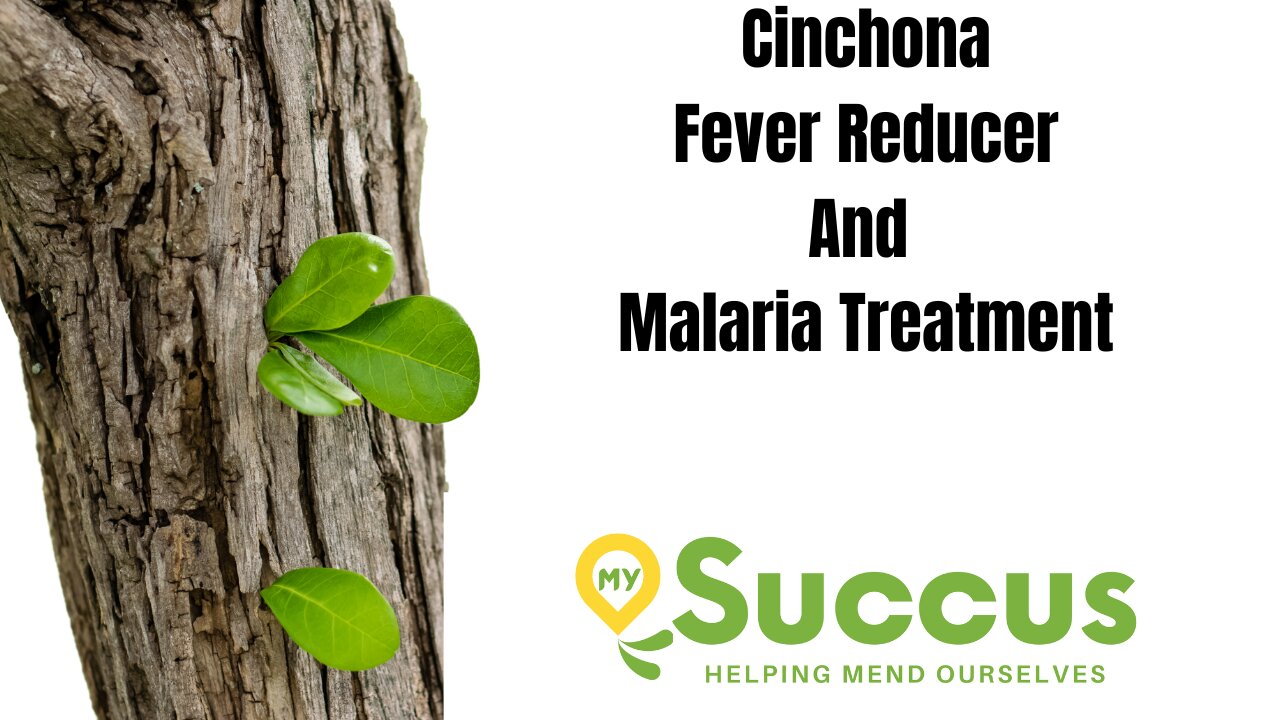Premium Only Content

Cinchona- Fever Reducer and Malaria Treatment
Cinchona is both antimalarial and antibacterial. Like the other alkaloids, it is antispasmodic. The bitter constituents in cinchona, including the alkaloids and quinovin, produce a reflex stimulation of the digestion as a whole, increasing stomach secretions. It is known to reduce heart rate and improve irregularity of heartbeat. The indigenous people of Peru have taken cinchona for many centuries, and it is still a widely used remedy for fevers, digestive problems, and infections. It is also used to treat other feverish conditions. As a bitter tonic, cinchona stimulates saliva, digestive secretions, and the appetite, as well as improves weak digestive function. Apart from that, Cinchona is useful as a gargle for sore, infected throats. The herb is used in herbal medicine for cramps, especially night cramps. This remedy also relieves arthritis pain. In India, cinchona is used to treat sciatica and dysentery. It has long been used by native people in the treatment of fever and malaria carried by mosquitoes. Bark is also used in the treatment of neuralgia, muscle cramps and cardiac fibrillation. Modern research has shown it to be a very effective treatment for fevers, and especially as a treatment and preventative for malaria. Bark is a bitter, astringent, tonic herb that helps lower fevers, relaxes spasms, is antimalarial due to the alkaloid quinine, and slows the heart due to the alkaloid quinidine. It is an ingredient in various proprietary cold and influenza remedies. The liquid extract is useful as a cure for drunkenness. It is also used to treat sore throats. The traditional way of preparing the medicine was to grind the dried bark into a powder, boiling in water and then either drinking it as tea or mixing it with wine or other alcohol. There are suggested dosages given in several herbalist reference books. It should be stressed that the alkaloids contained in cinchona bark are powerful drugs and thus no one should self-administer a cinchona decoction without consulting a medical doctor. Tonic water, which consists of a much lower concentration of quinine than what is recommended for malaria treatment, is considered safe. Care must be taken in the use of this herb since excess can cause a number of side effects including cinchonism, headache, rash, abdominal pain, deafness and blindness. The herb, especially in the form of the extracted alkaloid quinine, is subject to legal restrictions in some countries. Large and too constant doses must be avoided, as they produce headaches, giddiness and deafness.
-
 1:47:36
1:47:36
Precision Rifle Network
6 hours agoS3E8 Guns & Grub - the craziness continues
25.6K2 -
 41:37
41:37
Kimberly Guilfoyle
8 hours agoPresident Trump Making all the Right Moves,Live with Border Union Chief Paul Perez & Lawyer Steve Baric | Ep. 176
125K35 -
 19:38
19:38
Neil McCoy-Ward
11 hours agoMASS LAYOFFS Have Started... (How To Protect Your Income)
33.2K7 -
 46:21
46:21
PMG
23 hours ago $2.03 earned"Venezuelan Gang in 16 States, Animal Testing Crackdown, & Trump’s Nominee Battle"
21.5K7 -
 LIVE
LIVE
VOPUSARADIO
10 hours agoPOLITI-SHOCK! WW3!?, BREAKDOWN OF THE WORLD EVENTS & R.A.G.E. (What it means & What's next!)
254 watching -
 1:00:10
1:00:10
The StoneZONE with Roger Stone
7 hours agoWhy Democrats Hold Poor Children Hostage in Failing Schools | The StoneZONE w/ Roger Stone
47K6 -
 LIVE
LIVE
Tundra Gaming Live
7 hours ago $1.10 earnedThe Worlds Okayest War Thunder Stream//Air Force Vet Flys Jets
288 watching -
 2:00:54
2:00:54
Redacted News
8 hours agoBREAKING! Putin just SHOCKED the world, launches nuclear capable warheads "NATO can't stop it"
184K543 -
 55:37
55:37
Candace Show Podcast
8 hours agoMatt Gaetz Out, Jussie Smollett Walks Free! | Candace Ep 108
146K349 -
 54:43
54:43
LFA TV
1 day agoTrump Has Learned His Lesson | Trumpet Daily 11.21.24 7PM EST
36.5K9